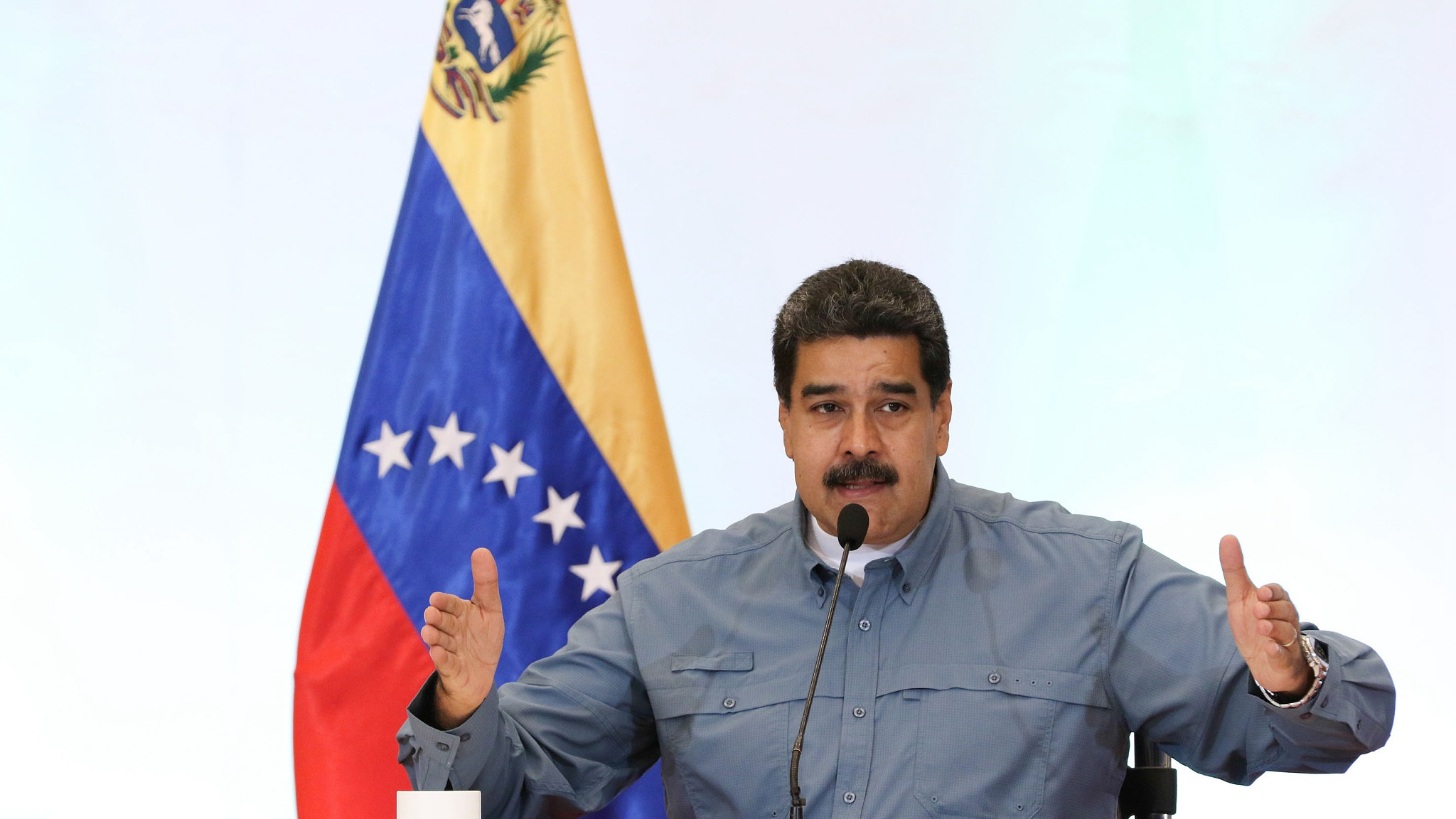Venezuelan President Nicolas Maduro on Wednesday called for an end to the political "persecution" of progressive Latin American leaders, who have been beset by legal troubles after leaving office.
Maduro cited three cases, including former presidents Cristina Fernandez of Argentina, Luiz Inacio Lula da Silva of Brazil, and Rafael Correa of Ecuador who was informed on Tuesday that Ecuadorian authorities had issued a warrant for his arrest.
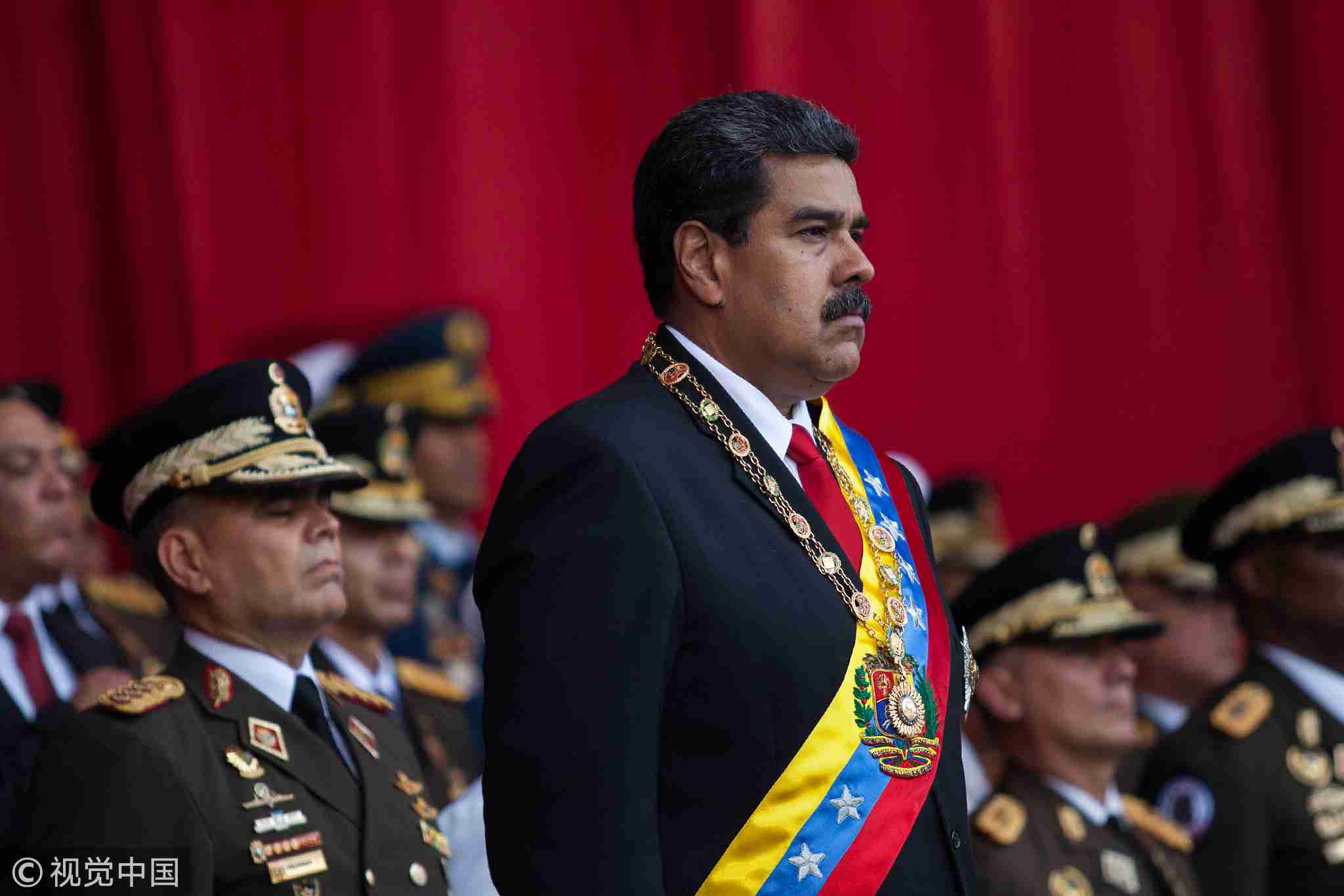
Nicolas Maduro, Venezuela's president, attends a "Vow of Loyalty" event at the Ministry of Defense in Caracas, Venezuela, May 24, 2018. /VCG Photo
Nicolas Maduro, Venezuela's president, attends a "Vow of Loyalty" event at the Ministry of Defense in Caracas, Venezuela, May 24, 2018. /VCG Photo
"First Cristina. Then Lula. Now Rafael Correa. Stop the persecution of authentic leaders in our Americas," Maduro posted to Twitter.
"The Bolivarian Revolution sympathizes with the people of Ecuador and @MashiRafael," Maduro added, using Correa's Twitter handle.
Brazil's former president Lula, who planned to run in Brazil's presidential elections in October, is instead serving a 12-year-and-one-month jail sentence for corruption. Lula denies the accusation, claiming it was designed to derail his reelection run.
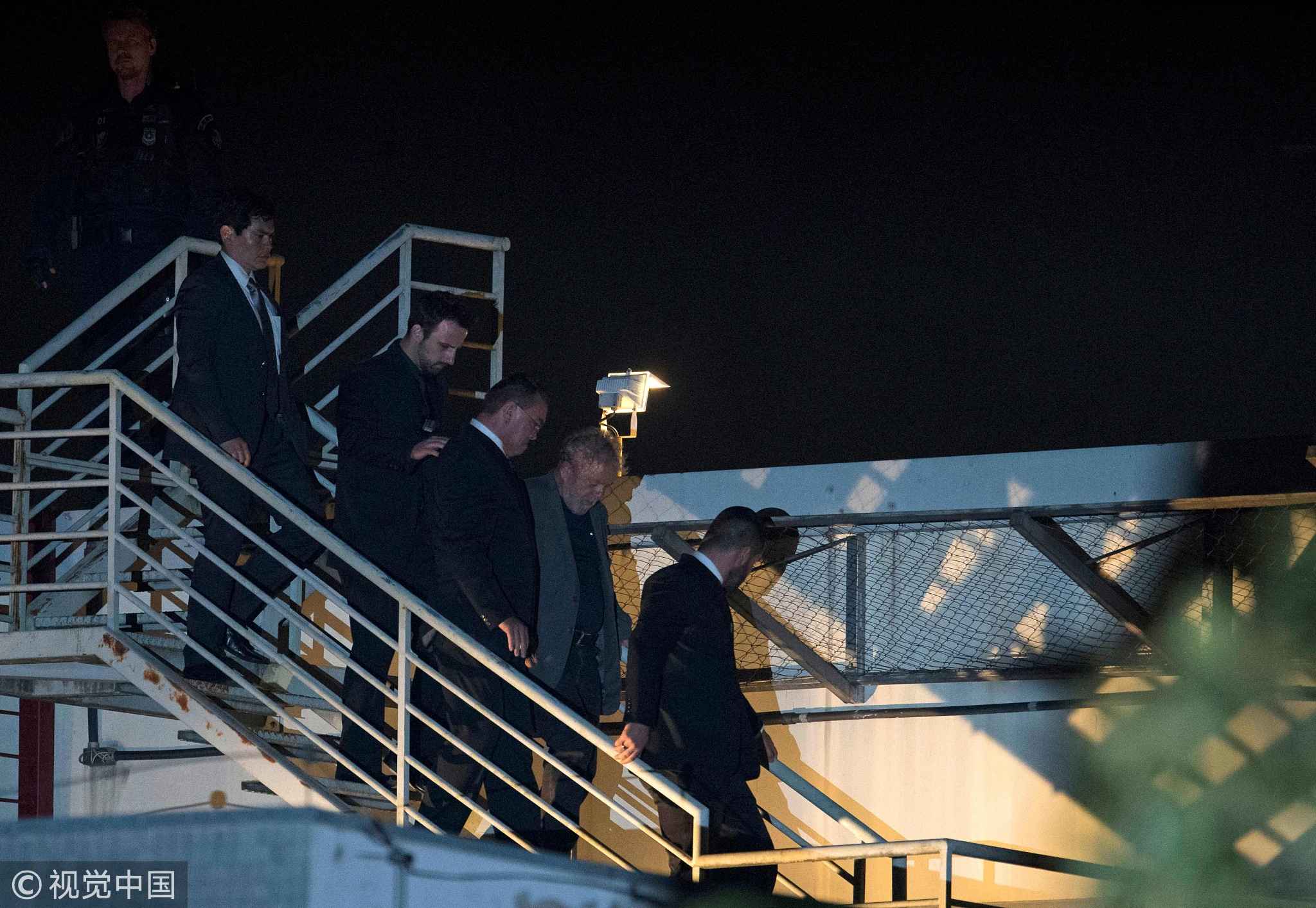
Brazilian ex-president Luiz Inacio Lula da Silva (C) arrives at the Federal Police headquarters where he is due to serve his 12-year prison sentence, in Curitiba, Parana State, Brazil, April 7, 2018. /VCG Photo
Brazilian ex-president Luiz Inacio Lula da Silva (C) arrives at the Federal Police headquarters where he is due to serve his 12-year prison sentence, in Curitiba, Parana State, Brazil, April 7, 2018. /VCG Photo
In May, Argentinean federal judge began legal proceedings against former president Cristina Fernandez de Kirchner and her two children for charges of money laundering and illicit association.
Fernandez de Kirchner denies all the charges and has repeatedly stated she is the subject of a "political persecution" by the current government.
On Tuesday, Ecuadorian judicial authorities ordered the preventive arrest of ex-president Rafael Correa, who is charged with taking part in an attempted kidnapping of a political rival five years ago.
Correa, who was in office from 2007 to 2017, has moved to Belgium with his family. He denied the charge, claiming it was a political vendetta against him.
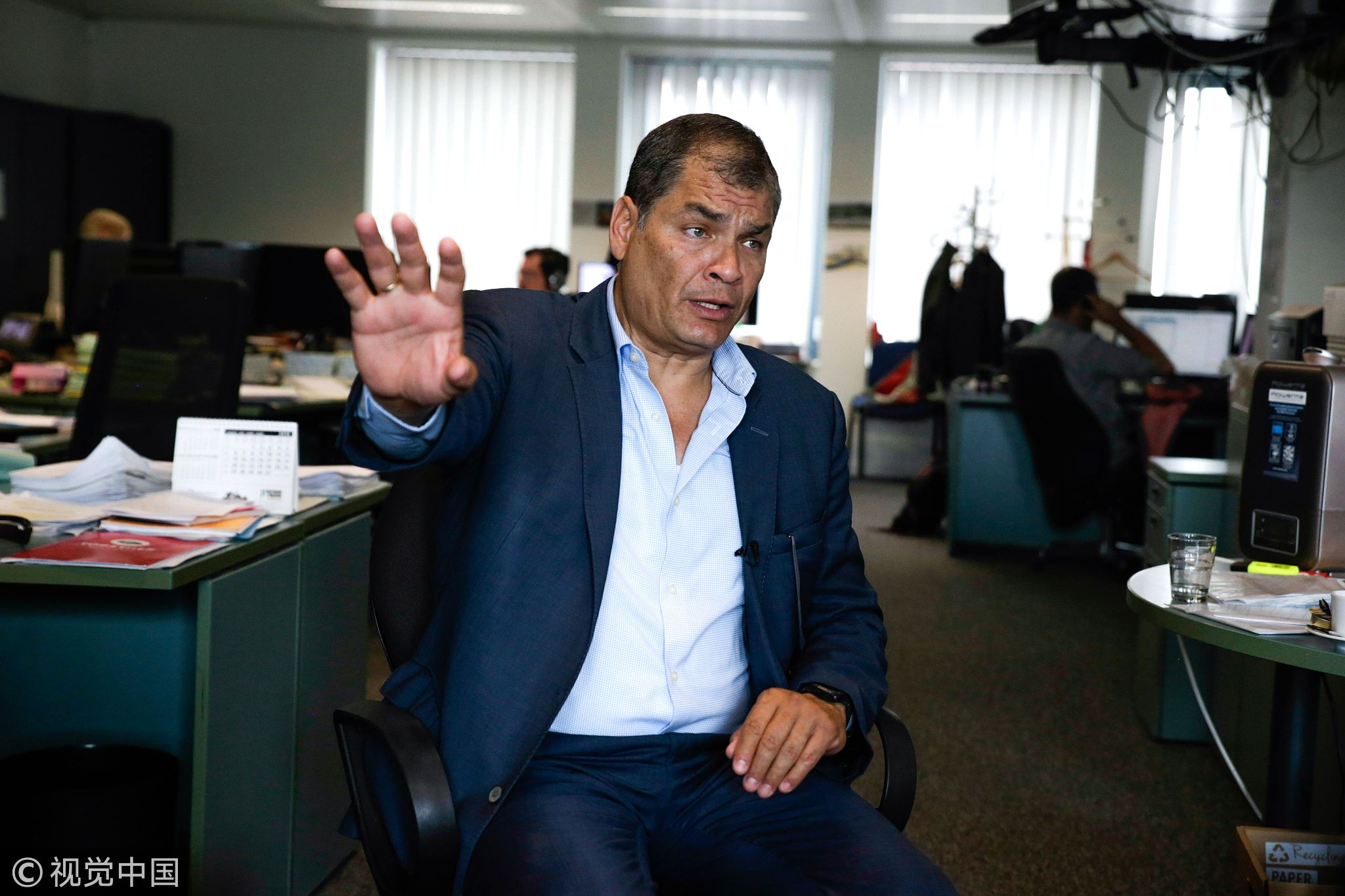
Former Ecuadorian president Rafael Correa during an interview with AFP in Brussels, July 4, 2018. /VCG Photo
Former Ecuadorian president Rafael Correa during an interview with AFP in Brussels, July 4, 2018. /VCG Photo
Venezuelan Vice President Delcy Rodriguez also expressed solidarity with Correa's plight, adding it was the result of "imperial criminalization of progressive, nationalist and leftist movements" in the region.
Trump considers invading Venezuela
It also emerged on Wednesday that US President Donald Trump asked top aides last year why the US couldn't simply invade Venezuela, in the context of discussing sanctions on the country.
The Associated Press (AP) reported that the suggestion stunned those present, including then US secretary of state Rex Tillerson and national security adviser HR McMaster, both of whom have since left the administration.
Although the president gave no indication he was about to call up military movements, he pointed out past cases like the invasions of Panama and Grenada in the 1980s where successful diplomacy was achieved in the region, according to AP.
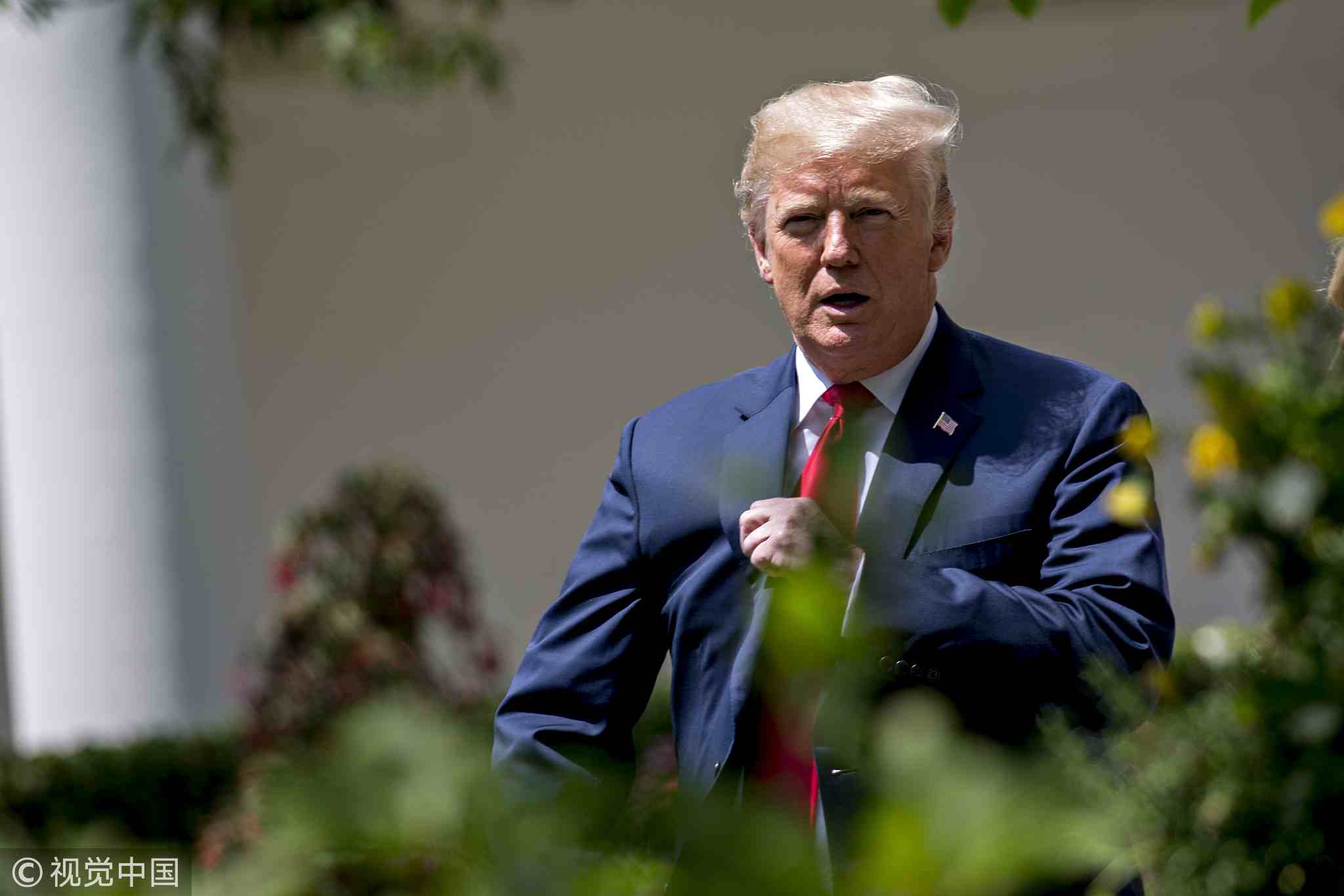
US President Donald Trump arrives to an event on the South Lawn of the White House in Washington, DC, US, on May 21, 2018 after stepping up economic pressure on Venezuela's president with an executive order prohibiting purchases of debts owed to the government. /VCG Photo
US President Donald Trump arrives to an event on the South Lawn of the White House in Washington, DC, US, on May 21, 2018 after stepping up economic pressure on Venezuela's president with an executive order prohibiting purchases of debts owed to the government. /VCG Photo
The idea, despite his aides’ best attempts to shoot it down, would nonetheless persist in the president’s head.
"We are all over the world and we have troops all over the world in places that are very, very far away,” Trump said. “Venezuela is not very far away and the people are suffering, and they are dying. We have many options for Venezuela, including a possible military option if necessary.”
Trump also mentioned the proposal with Colombian President Juan Manuel Santos, the AP reported, and in September spoke to leaders of four Latin American countries at the United Nations General Assembly about it.
The White House declined comment, the AP reported, but a spokesman for the National Security Council said the US will consider all options to restore Venezuela’s democracy.
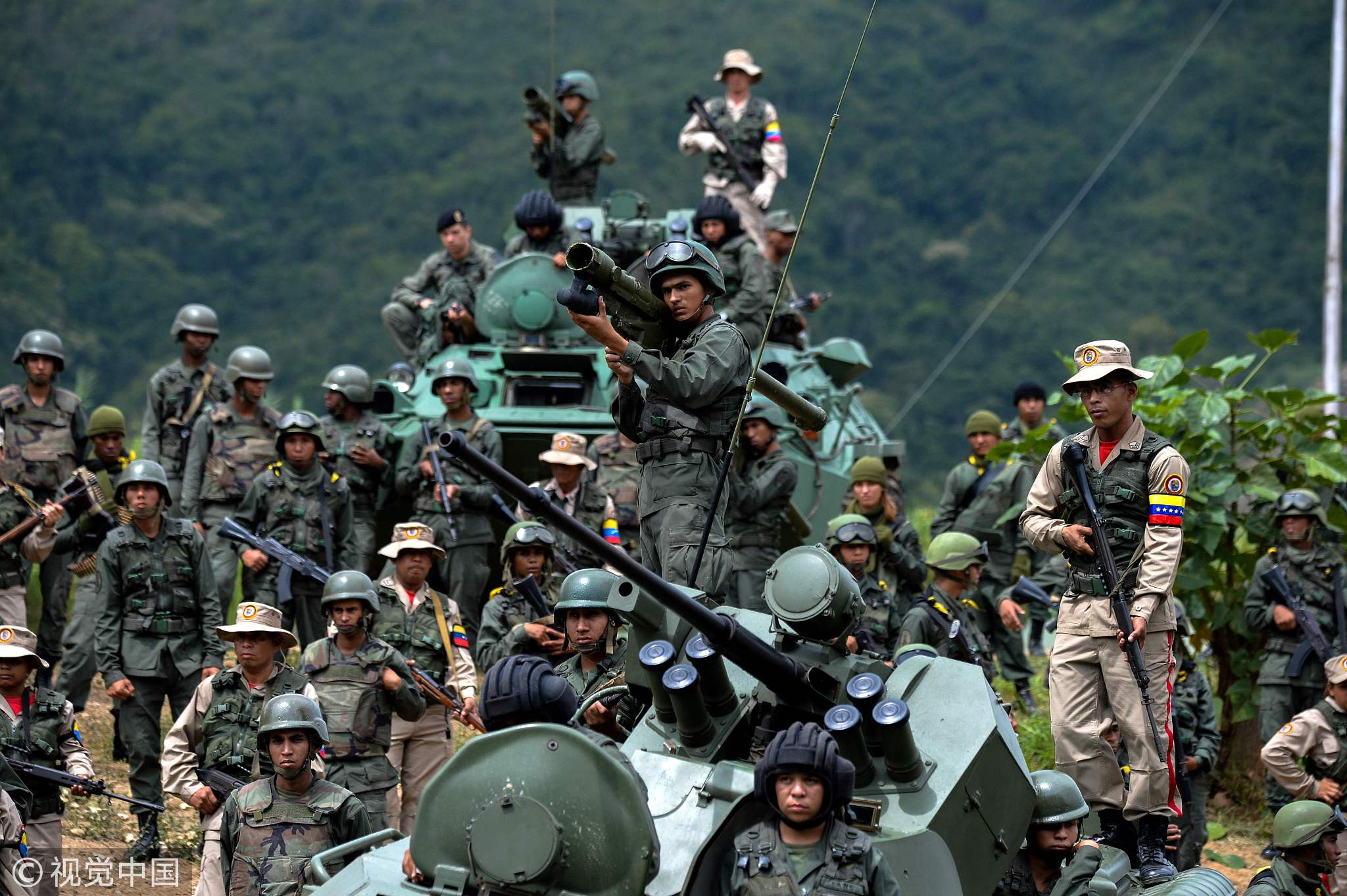
Venezuelan troops in different fatigues and carrying various weapons attend the press conference given by Defense Minister general Vladimir Padrino Lopez at Fort Tiuna in Caracas, August 14, 2017. /VCG Photo
Venezuelan troops in different fatigues and carrying various weapons attend the press conference given by Defense Minister general Vladimir Padrino Lopez at Fort Tiuna in Caracas, August 14, 2017. /VCG Photo
Venezuela has been a key focus of the Trump administration's policy toward Latin America, with Trump's administration enacting numerous sanctions to level up pressure on the government of Venezuelan President Maduro.
Maduro warns Venezuela army
Maduro later on Wednesday urged his armed forces to be on guard following Trump's reported "invasion" plans.
"You cannot lower your guard for even a second, because we will defend the greatest right our homeland has had in all of its history," Maduro said at a military ceremony, "which is to live in peace."
Maduro said these reports back up his assertion that the United States is planning a military attack against Venezuela to seize its vast oil reserves.
Maduro said Trump’s question to his advisers came after Venezuelan opposition figures visited the White House.
"Is this a coincidence? No, it is not a coincidence," Maduro said.
(With inputs from news agencies)

